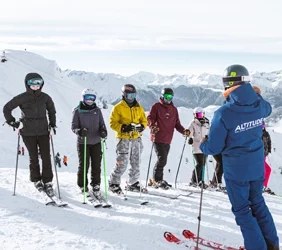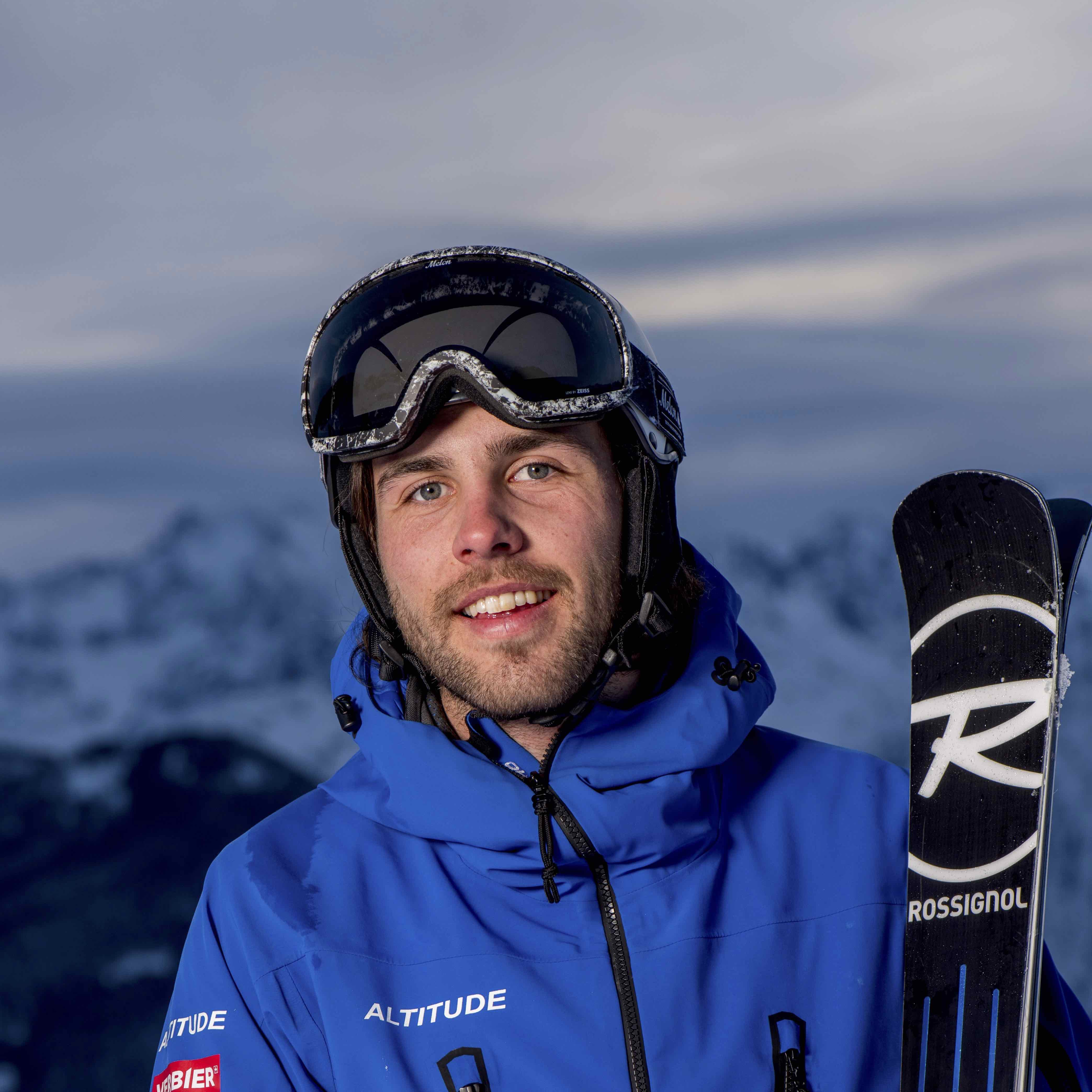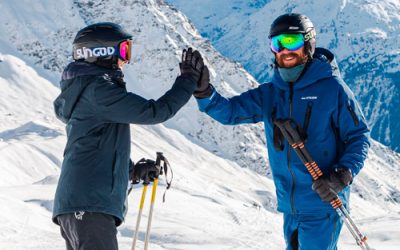BASI Level 1
Designed for aspiring instructors who wish to enter the BASI education system. It suits those wishing to work in controlled environments for example a snow dome. The qualification entails a one-week exam running Monday to Friday, these exams are available at various times throughout the year in both the mountains and in snowdomes in the UK. They can be booked via the BASI website.
The exam weeks are set out nicely in that they aren’t full on assessments, the week consists of learning and training throughout the week and it is more of a continual assessment rather than a ski off at the end of the week. The trainer will assess your teaching and technical skiing and give you a pass or fail at the end of the week.
It is possible to pass one part and not the other so if you fail one part (the teaching or the technical) you will need to take a 1-day resit to gain the full qualification. You’ll also require a first aid qualification, 35 shadowing hours, and a child protection qualification to validate your license.
Your first aid and child protection are generally valid for 3 years and just need renewing when they run out.
What are shadowing hours?
These are required by BASI as part of the level 1 qualification and need to be completed once you have attended the level 1 exam week. Your shadowing hours usually involve you heading out with an instructor from a ski school and “shadowing” their lessons, taking learnings from their teaching, whilst also watching the group and putting your analysis skills to practise. It’s a great insight to how lessons are structured and how well different drills and exercises work in real life.
You can however use any of the following experiences to tick off your shadowing hours:
- Understand how bookings are taken in a ski school sales office and how clients are separated into different standards.
- Shadowing hours at slopes that use Maxxtracks technology.
- Understanding how customer feedback is taken on board and what the procedures are and how these improve instructor and office processes.
- Take part in ski school training for the schools core team of instructors.
- Understanding how ski schools maintain and implement safety procedures and how they maintain these
- Understand a ski schools risk assessment
- Understand how a ski school reports accidents and what their first aid procedures are.
Once you have completed these hours with a ski school, you will need to ask them to sign your hours off on your log sheet (you can download this from BASI directly)
BASI Level 2
This exam runs for 10 days Monday to Friday with a break over the weekend. Like the level 1, the exam assesses your skiing and teaching abilities. You then require another 35 hours shadowing experience that must be completed since completion of the level 1 exam. The level 2 is a great pathway to teaching on snow and starting your on mountain career. Our 10 week courses provide you with both the level 1 and 2. qualifications.
Technical Assessment Criteria
Central Theme
- Perform all phases of CT on terrain appropriate to client’s needs.
Piste Long
- Perform cleanly carved turns on a blue piste.
- Show a variety of turn radii.
- Use effective posture and balance.
Piste Short
- Perform grippy, (from the fall line), round, symmetrical, short turns in various corridors on a blue or easy red piste.
- Show the ability to maintain a constant speed.
- Use effective posture and balance.
Variable
- Perform rounded, linked turns.
(Correct as per the BASI website as at 12th June 2020)
Once you have the level 2 ticked off, you can head off to the mountain and teach on snow. Typically, you’ll teach beginner skiers up to intermediate skiers of varying ages on both a group and private basis. You can happily stay at this qualification for as long as you wish. Some instructors will choose to perhaps spend a year teaching before heading towards level 3, aware that they are at the lower end of the salary scale.
Some will start to train towards the level 3 straight away some instructors will stay at level 2 for a few years whilst they build teaching experience and knowledge before commencing with the level 3. There is no deadline or right answer as to when you need to start the level 3, just bear in mind that if you haven’t taken an exam after 3 years, you’ll be required by BASI to take a refresher course.
Everyone’s finances and personal situations come into play in deciding when the right time is to take that next rung of the ladder.
BASI ISIA Level 3
When you get to level 3, the qualification requirements ramp up a bit with more criteria to gain the qualification. This is however is reflected by the rise in salary that you can demand and also a broader range of clientele that you can expect to teach. Just think of bumps sessions and powder days!
The Level 3 in the BASI system also reaches the ISIA standard. ISIA is the International Ski Instructors Association and provides a standard across all governing bodies, with different qualifications achieving the ISIA stamp. For BASI this is the level 3 and in the Canadian System, CSIA, this is level 4. This comparison between bodies, makes it easier for ski schools to recognise different qualifications from different systems that they may not be as familiar with, for example the BASI 3 and CSIA 4 are equally comparable.
Technical Assessment Criteria
- 200 hours teaching experience – this must be completed after you have earned your level 2 qualification and can be completed on dry slopes or on snow.
- 5-day teaching course
- 5-day technical course
- Evolution of BASI online course – this has replaced the old Common Theory course and focuses on tourism, culture and sociology.
- Second discipline (5 days) – this can be taken in snowboard, telemark, adaptive, and Nordic
- Mountain Safety Course (6 days)
- Second Language Test – an oral and aural test lasting 10-15 mins
- BASI Coaching Course (5 days)



